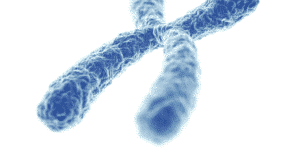Understanding and Identifying Miscarriage Symptoms

Miscarriage is a common occurrence during early pregnancy, particularly in the first trimester after conception. It can be a difficult and emotional experience for those who go through it. Symptoms of a miscarriage may include vaginal bleeding, cramping, and passing tissue or clots from the womb. However, it is important to note that not all vaginal bleeding during early pregnancy indicates a miscarriage. Blood tests may be necessary to determine if there are any side effects related to the pregnancy.
If you experience any symptoms of a possible miscarriage or side effects during a healthy pregnancy, it is recommended to contact your healthcare provider for further evaluation and testing. Tests that may be performed to confirm a miscarriage or chemical pregnancy include ultrasound and blood tests to check hormone levels. It is important to monitor the health of the womb throughout the pregnancy to ensure a successful outcome.
But what if you want to confirm a miscarriage at home? While it is always best to seek medical advice from your healthcare provider or hospital, there are some pregnancy symptoms and signs you can look out for that may indicate an early miscarriage has occurred. It is important to note that these symptoms can also be present in a healthy pregnancy, so a blood test may be necessary to confirm a miscarriage.
One way to confirm an early miscarriage or chemical pregnancy at home is by monitoring your symptoms closely. If you experience heavy bleeding with large clots or tissue passing through the vagina accompanied by severe cramps or pain in the lower abdomen or back, it is important to seek medical attention from your care provider or go to the emergency department. This can help ensure that you receive proper care and support for you and your baby.
Another way of confirming the progress of an early miscarriage at home is by taking a pregnancy test. It is important to inform your care provider or doctor about positive pregnancy test results followed by negative results, as it could indicate that the body has naturally terminated the pregnancy.
It’s important to remember that these methods are not always accurate as they do not take into account individual differences in how each person experiences their symptoms. Therefore, it’s essential that anyone experiencing any symptoms related to their pregnancy should seek medical attention from a doctor immediately to monitor their progress.
Common warning signs of miscarriage to look out for

Miscarriage is a heartbreaking experience that can happen to any woman, including those who have experienced a chemical pregnancy. It’s important to know the warning signs of miscarriage so you can seek medical attention from a doctor immediately and avoid complications. Here are some common symptoms to look out for:
Heavy Vaginal Bleeding and Abdominal Cramping
The most common warning sign of miscarriage is heavy vaginal bleeding accompanied by abdominal cramping. This bleeding may be heavier than your normal period and may contain clots or tissue. The cramping may feel like menstrual cramps or more severe. If you experience any pregnancy symptoms such as nausea or fatigue, it’s important to consult with your doctor as these could be signs of a chemical pregnancy.
Early Miscarriage Symptoms Suddenly Disappearing
If you experience pregnancy symptoms suddenly disappearing, such as nausea or breast tenderness, it could indicate an early miscarriage. This happens when the pregnancy stops developing and the body begins to reabsorb it. It is important to consult a doctor if you suspect a miscarriage.
Other Side Effects
In addition to heavy vaginal bleeding and abdominal cramping, other side effects may occur during a chemical pregnancy or miscarriage. These include fever, chills, and abdominal pain. If you experience any of these symptoms along with bleeding, seek medical attention from a doctor immediately.
Cervical Changes
The cervix may also show signs of miscarriage, such as opening or dilating before the 20th week of pregnancy. Your doctor will be able to detect this during an exam.
Miscarriages can happen at any point during the first 20 weeks of pregnancy but most occur within the first 12 weeks. If anything seems off, it’s important to seek medical attention from a doctor within hours to avoid complications.
Brown Spotting
Brown spotting is not always a sign of miscarriage but it’s important to monitor any changes in color or amount of bleeding, especially if you are experiencing other pregnancy symptoms. If you notice any changes, it’s best to consult with your doctor for further evaluation. Brown spotting could indicate implantation bleeding or old blood from your last period.
What to expect during a natural miscarriage

Natural Miscarriage: What to Expect
When a pregnancy ends before the 20th week, it is called a miscarriage. While some women may opt for medical or surgical intervention to end the pregnancy, others may experience a natural miscarriage where the body expels the pregnancy tissue on its own. Here’s what you can expect during a natural miscarriage.
The Process of Natural Miscarriage
A natural miscarriage can take several days to weeks and often involves heavy bleeding, cramping, and passing of clots. The process usually starts with mild cramps and spotting that gradually become heavier over time. As the body begins to expel the pregnancy tissue, you may experience severe cramps that are similar to menstrual cramps. You may also pass large blood clots or tissue from your vagina.
Pain Relief Medication
It is important to note that pain relief medication may be necessary during a natural miscarriage as the process can be uncomfortable and painful. Over-the-counter pain relievers like ibuprofen or acetaminophen can help manage discomfort during this time. However, if you experience severe pain or excessive bleeding, it is essential to seek medical attention immediately.
Monitoring Symptoms Closely
During a natural miscarriage, it is crucial to monitor symptoms closely and seek medical attention if there is excessive bleeding, fever, or signs of infection such as foul-smelling discharge or abdominal pain. Some women may also experience emotional distress during this time and may benefit from counseling services.
What Happens If I Miscarry at Home?
If you are experiencing a natural miscarriage at home, ensure that you have access to sanitary pads and comfortable clothing. It is also important to stay hydrated by drinking plenty of fluids like water and juice. Avoid using tampons as they increase the risk of infection during this time.
How Do You Confirm A Miscarriage At Home?
Confirming a miscarriage at home can be challenging, and it is always best to seek medical attention for confirmation. However, some signs that may indicate a miscarriage include vaginal bleeding, passing of clots or tissue from the vagina, and severe cramps.
Types of miscarriage and their symptoms

Threatened, Inevitable, Incomplete and Complete Miscarriage: Understanding the Different Types and Their Symptoms
Miscarriage is a devastating experience for any woman. It usually occurs within the first 20 weeks of pregnancy, with most miscarriages happening during the first trimester. There are four types of miscarriage: threatened, inevitable, incomplete, and complete. Each type has its own set of symptoms that women should be aware of.
Threatened Miscarriage
A threatened miscarriage is when vaginal bleeding occurs before 20 weeks of pregnancy while the cervix remains closed. This means that there’s still a chance for the pregnancy to continue normally. Other symptoms include cramping or lower back pain. Women who experience these symptoms should contact their healthcare provider immediately.
Inevitable Miscarriage
An inevitable miscarriage is when vaginal bleeding and cramping occur before 20 weeks of pregnancy while the cervix begins to dilate or open up. This means that the body is preparing for a miscarriage to happen. Other symptoms include passing tissue from the vagina and feeling contractions similar to labor pains.
Incomplete Miscarriage
An incomplete miscarriage happens when some pregnancy tissue remains in the uterus after a miscarriage has occurred. This can cause heavy bleeding and cramping as well as an increased risk of infection if left untreated. Women may also pass large clots or pieces of tissue from their vagina.
Complete Miscarriage
A complete miscarriage is when all pregnancy tissue has been expelled from the uterus naturally without medical intervention. Symptoms include heavy bleeding and cramping followed by lighter bleeding that lasts for up to two weeks after the event.
It’s important for women who experience any symptoms of a possible miscarriage to seek medical attention immediately. While it’s not always possible to prevent a miscarriage from occurring, early detection can help ensure that women receive appropriate care and support during this difficult time.
Risk factors that increase the chances of a miscarriage

Women who are pregnant experience a range of emotions, including excitement, anticipation, and joy. However, they also face the risk of miscarriage. Miscarriage is the loss of pregnancy before the 20th week. It is a heartbreaking experience that many women go through, and it can be caused by several factors.
Previous Miscarriages
Women who have had one or more previous miscarriages are at an increased risk of experiencing another one. According to studies, about 1 in 5 pregnancies ends in miscarriage, but for women who have had two or more consecutive miscarriages, the likelihood increases to about 28%. The exact reason why this occurs is not well understood, but some theories suggest that it may be due to genetic abnormalities or structural issues with the uterus.
Medical Conditions
Certain medical conditions can increase the chances of a miscarriage occurring. Women with diabetes, thyroid disorders, and autoimmune diseases such as lupus are at a higher risk than those without these conditions. These medical conditions affect how the body functions and can lead to complications during pregnancy that may result in a miscarriage.
Advanced Maternal Age
As women age, their chances of having a healthy pregnancy decrease. Women over the age of 35 have an increased risk of miscarriage because their eggs are more likely to have chromosomal abnormalities that can prevent proper development of the fetus. In addition to this increased chance for chromosomal abnormalities in older mothers-to-be’s eggs as well as lower levels of progesterone which helps support early pregnancy.
Lifestyle Factors
Lifestyle factors such as smoking cigarettes or consuming alcohol during pregnancy can significantly increase the chances for a woman to miscarry her baby. Drug use is also associated with an increased risk for both spontaneous abortions (miscarriages) and stillbirths (when babies die after 20 weeks). Exposure to environmental toxins like radiation or chemicals has been linked with higher rates of fetal death.
Infections
Infections during pregnancy can cause complications that may lead to a miscarriage. Some infections that have been linked to miscarriage include rubella, cytomegalovirus (CMV), and toxoplasmosis. These infections can cause birth defects or other health problems in the developing fetus, which may result in a miscarriage.
Multiple Pregnancies
Women who are pregnant with twins or triplets are at an increased risk of experiencing a miscarriage compared to those with single pregnancies. This is because multiple pregnancies put more strain on the uterus and increase the chances of complications such as premature labor or preeclampsia, which can lead to a miscarriage.
Medical treatment options for a miscarriage

Expectant Management, Medication, and Surgery: Medical Treatment Options for a Miscarriage
Miscarriage is the loss of pregnancy before the 20th week. It is a common occurrence that affects many women worldwide. While some women may experience minimal physical symptoms during a miscarriage, others may require medical treatment to manage the condition. There are different medical treatment options for a miscarriage, including expectant management, medication, and surgery.
Expectant Management
Expectant management involves waiting for the body to naturally expel the pregnancy tissue without any medical intervention. This option is suitable for women who have experienced a missed or incomplete miscarriage where there is no risk of infection or excessive bleeding. During this process, your healthcare provider will monitor you closely through regular ultrasound scans and blood tests to ensure that your body is responding appropriately.
Medication
Medication options include tablets that can help speed up the process of passing the tissue or injections of hCG to help the body complete the miscarriage. The medication option is suitable for women who have an incomplete miscarriage with retained products of conception (POC) in their uterus. Your healthcare provider will prescribe medications such as Misoprostol or Mifepristone that cause uterine contractions and help pass POC out of your body.
Surgery
Surgery may be necessary in cases where expectant management or medication is not effective, especially when experiencing miscarriage symptoms. Surgical procedures involve removing POC from your uterus using either curettage or dilation and evacuation (D&E) procedure under anesthesia. Curettage involves scraping away any remaining tissue from inside your uterus using a suction device while D&E involves dilating your cervix and removing POC with surgical instruments.
It’s essential to seek medical attention from a healthcare provider if experiencing a miscarriage since they can provide guidance on which treatment option is best suited for you based on factors like gestational age, overall health status, and severity of symptoms. In some cases, emergency department or hospital care may be necessary.
Emotional support and coping strategies after a miscarriage

Emotional support is crucial after a miscarriage. Seeking support from loved ones can help ease the pain and provide comfort during this difficult time. It’s important to remember that everyone grieves differently, so it’s essential to find what works best for you.
Talking to someone about your feelings can be helpful in processing your emotions. You may feel comfortable talking to a family member, friend, or therapist. Sharing your story with others who have gone through similar experiences can also be beneficial. There are many online support groups where you can connect with others who have experienced a miscarriage and share your thoughts and feelings.
Advice from a healthcare professional can also provide guidance on coping strategies and emotional healing for those experiencing miscarriage symptoms. Your doctor may recommend seeing a therapist or counselor specializing in grief counseling. They may also suggest joining a support group or attending a workshop focused on coping with pregnancy loss.
Managing stress through self-care activities such as meditation or exercise can be a good idea to help cope with the emotional toll of a miscarriage. Taking care of yourself physically and emotionally is crucial during this time, as it can help reduce anxiety and depression symptoms.
Creating a safe and comfortable space at home can also provide a sense of comfort and support during this difficult time. Surrounding yourself with things that bring you joy, such as photos, candles, or comforting scents, can help create an environment that promotes healing.
Pregnancy testing after a miscarriage: What to expect

A miscarriage can be a traumatic experience for women, and it’s normal to wonder what comes next. One of the most common questions is how long it takes for pregnancy hormones to leave the body and when someone should take a pregnancy test after a miscarriage. In this section, we will discuss what to expect when taking a pregnancy test after experiencing a pregnancy loss.
Positive results after a miscarriage
It’s important to note that even if someone has had a miscarriage, their body may still contain pregnancy hormones that could cause the home pregnancy test to show positive results. It’s recommended that women wait at least one week after they suspect they have experienced a miscarriage before taking an at-home pregnancy test. This waiting period will allow enough time for any remaining tissue or blood from the previous pregnancy loss to leave the body. If someone takes an at-home test too soon, they may get false-positive results.
If someone does receive positive results on their at-home pregnancy test after experiencing a miscarriage, it’s essential to seek medical attention as soon as possible. A doctor will need to confirm whether there is any remaining tissue in the uterus or if it’s due to residual hormones from the previous pregnancy.
Blood tests for confirmation
In some cases, doctors may recommend doing blood tests instead of relying solely on home tests. Blood tests are more sensitive and accurate than urine tests and can detect lower levels of hCG (human chorionic gonadotropin) hormone in the bloodstream, which is present during early stages of pregnancies. These blood tests can also help doctors determine whether there are still any remaining tissues in the uterus.
Negative results after a miscarriage
It’s also possible for an individual who has experienced a recent miscarriage not to show positive results on their home pregnancy test because all of the tissue has been expelled from their uterus. In this case, negative results indicate that there are no remaining pregnancy hormones in the body. However, it’s essential to note that if someone has not had a period after their miscarriage, they may still be at risk of getting pregnant again and should take precautions.
Common myths and misconceptions about miscarriages

Miscarriages are a common occurrence, but there are still many myths and misconceptions surrounding them. In this section, we will discuss some of the most common myths and misconceptions about miscarriages.
Myth 1: Miscarriages only happen to women who are older or have health problems.
The truth is that anyone can experience a miscarriage, regardless of age or health status. While there are certain risk factors that can increase the likelihood of a miscarriage, such as advanced maternal age or pre-existing medical conditions like diabetes or thyroid disease, miscarriages can happen to anyone.
Myth 2: A missed miscarriage is easy to detect.
A missed miscarriage occurs when the fetus stops developing but the body does not expel it. Contrary to popular belief, it can be difficult to detect a missed miscarriage without medical intervention. Some women may continue to experience pregnancy symptoms even though the fetus has stopped developing, leading them to believe that everything is normal.
Myth 3: Stress, exercise, and sex during pregnancy cause miscarriages.
Many people believe that stress or physical activity during pregnancy can cause a miscarriage. However, there is no evidence to support these claims. In fact, moderate exercise during pregnancy is generally considered safe and may even have benefits for both mother and baby. Similarly, having sex during pregnancy does not increase the risk of a miscarriage unless there are underlying medical issues.
It’s important for women who suspect they may be experiencing a miscarriage to seek medical attention promptly. While some women may choose to wait and see if their body expels the fetus naturally, there are potential complications that can arise if left untreated. These include infection or heavy bleeding.
If you have experienced more than one miscarriage, it’s natural to wonder why it keeps happening. Recurrent pregnancy loss (RPL) is defined as two or more consecutive losses before 20 weeks gestation. There are many potential causes of RPL, including chromosomal abnormalities, hormonal imbalances, uterine abnormalities, and autoimmune disorders. If you have experienced multiple miscarriages, it’s important to speak with your healthcare provider to determine the underlying cause and develop a plan for future pregnancies.
Understanding, Identifying, and Coping with Miscarriage

Miscarriage is a heartbreaking experience that affects many women around the world. It can be difficult to understand, identify, and cope with this loss. However, by knowing the common warning signs of miscarriage and understanding the different types and risk factors associated with it, you can take steps to confirm a miscarriage at home and seek medical treatment if necessary.
During a natural miscarriage, you may experience symptoms such as cramping, bleeding, and passing tissue. It’s important to know what to expect during this process so that you can prepare yourself both physically and emotionally. There are different types of miscarriages that may occur at different stages of pregnancy, each with their own set of symptoms.
Certain risk factors such as age, health conditions, or lifestyle choices may increase your chances of experiencing a miscarriage. By being aware of these factors and taking steps to reduce your risks where possible (such as quitting smoking or managing chronic health conditions), you can help protect yourself from this loss.
If you do experience a miscarriage, there are medical treatment options available depending on the stage of pregnancy and severity of symptoms. Emotional support is also crucial during this time – coping strategies such as talking to loved ones or seeking professional counseling can help you work through your grief.
It’s important to note that misconceptions about miscarriages still exist in society today. These myths can perpetuate harmful stereotypes or place unnecessary blame on those who have experienced this loss. By debunking these myths and spreading accurate information about what causes miscarriages (often due to chromosomal abnormalities) we can better support those who have been affected by them.




